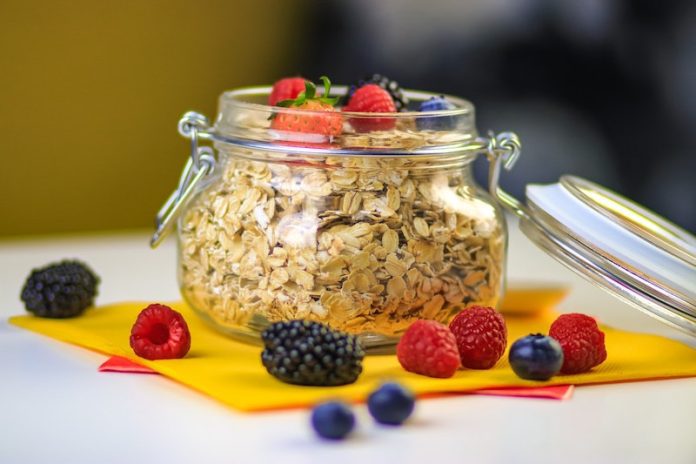
Scientists from the University of Otago found eating less-processed whole grain foods could improve blood sugar levels in people with type 2 diabetes compared with whole-grain foods that were finely milled.
A whole grain is a grain of any cereal and pseudocereal that contains the endosperm, germ, and bran, in contrast to refined grains, which retain only the endosperm.
As part of a generally healthy diet, consumption of whole grains is associated with a lower risk of several diseases.
In the study, the team aimed to examine the effects of whole-grain processing, specifically milling, on blood sugar control in adults with type 2 diabetes.
Milling is a process in which grains such as oats, wheat, rice, and corn are dehulled and ground into smaller pieces or flours to improve palatability, reduce cooking time, and create food products.
During the milling process, the wheat grain gets fragmented into various parts that are separated when it is passed through the arrangement of sieves which is quite a bit complex.
In the study, the participants were assigned to two interventions for 2 weeks. They were advised to replace the grain foods they normally consumed with the intervention foods.
Intervention foods were nutrient-matched whole-grain products of wheat, oats, and brown rice that differed in their degree of processing (less processed vs. milling).
The participants wore continuous blood sugar monitoring systems during the study.
The team showed that 31 adults with type 2 diabetes commenced the trial and 28 (90%) completed both interventions.
There was no difference in the biomarkers of whole-grain intake and energy intake.
The team found that after-meal blood sugar levels were 9% lower following breakfast and 6% lower following all meals of less-processed whole grains when compared with finely milled grains.
In addition, day-long blood sugar variability also was reduced.
The researchers found the average change in body weight differed by 0.81 kg between the two whole-grain interventions.
The body weight increased during the finely milled intervention and decreased during the less-processed whole-grain diet.
The findings suggest that eating less-processed whole-grain foods over two weeks could improve blood sugar levels in adults with type 2 diabetes compared with an equivalent amount of whole-grain foods that were finely milled.
The team says that dietary advice should promote the consumption of minimally processed whole grains.
The research is published in Diabetes Care and was conducted by Sebastian Åberg et al.
Copyright © 2022 Scientific Diet. All rights reserved.





